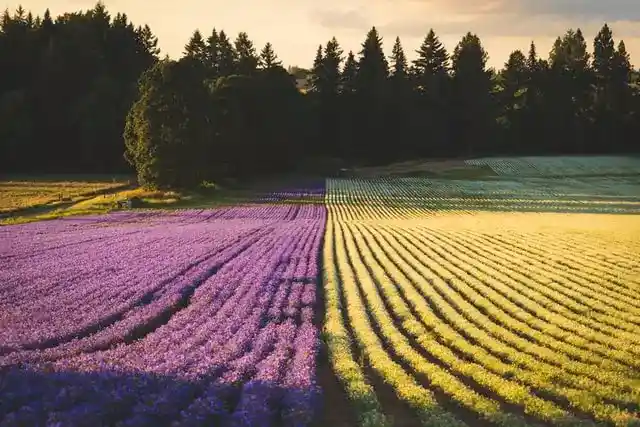Flower farming, also known as floriculture, is the study of growing and promoting flowers. Horticulture consists of cultivating flowers and decorative plants for direct sale or to be used as a raw resource in the cosmetic and pharmaceutical sectors.
In today’s modern era, farmers are switching to cultivating cash-intensive crops. Due to this, they are enhancing their revenue income. Flowers are also a type of cash crop, and they are also a key source of income for farmers. They also prefer floriculture due to less labor and lower cost in comparison to traditional crop cultivation.
Owning your own farmland can help you tap into the budding flower industry. Organic Monk offers well-managed fertile farmlands for organic farming well suitable for floriculture. In India, around 3 lakh hectares of farmland are consumed by flower farming.
Flowers require limited water and land for cultivation. This makes it more profitable and advantageous in comparison to the cultivation of rice and wheat. Floriculture also offers a better opportunity to farmers in terms of income generation and empowerment, and it is for both small-scale and large-scale farmers.
Different types of floriculture
There are various types of floriculture, but the most common type of potted plants, cut flowers, and bedding plants.
Potted flower farming: Such type of floriculture is suitable for indoor or enclosed farming. Flower plants are generally grown in pots, such as chrysanthemums, peace lilies, and snake plants to name a few.
Cut/Transfer Flowers: Cut flowers are grown for blossoming flowers that are cut together with inclusive roots, leaves, and branches for making beautiful bouquets or decorations. Such flower types include roses, carnations, orchids, gerberas, and other fresh-cut flowers.
Bedding plants: These plant types are used for creating flower beds and landscaping. The main purpose of using bedding plants in the landscape is to offer bright colors throughout the growing season. Bedding plants can be annual, biennial, or even perennial plants.
Significance of flowers in nature
Flowers are a very important botanically essential source of food for numerous organisms and also an essential means to improve pollination by attracting other animals. Flowers do protect their seeds as they develop, ensuring the successful transfer of genetic material to the next generation. Plants that make flowers are known as angiosperms, and they belong to the groups that have evolved to encompass a wide range of diversity in size, color, and form.
Well-known flowers used in the perfume industry
Flowers are generally used for curating perfumes, as they hold strong pleasing fragrances and they are widely used in the cosmetic and perfume industry.
- The perfume industry basically uses two varieties of roses, such as May rose and the Damask rose. It is considered the most commonly used rose in the perfume industry. Damask rose has a darkish red tone and is intensively used in creams, lipsticks, lotions, and powders.
- Jasmine: It is a very important flower in the perfume industry and it is also known as the flowers of flowers.

